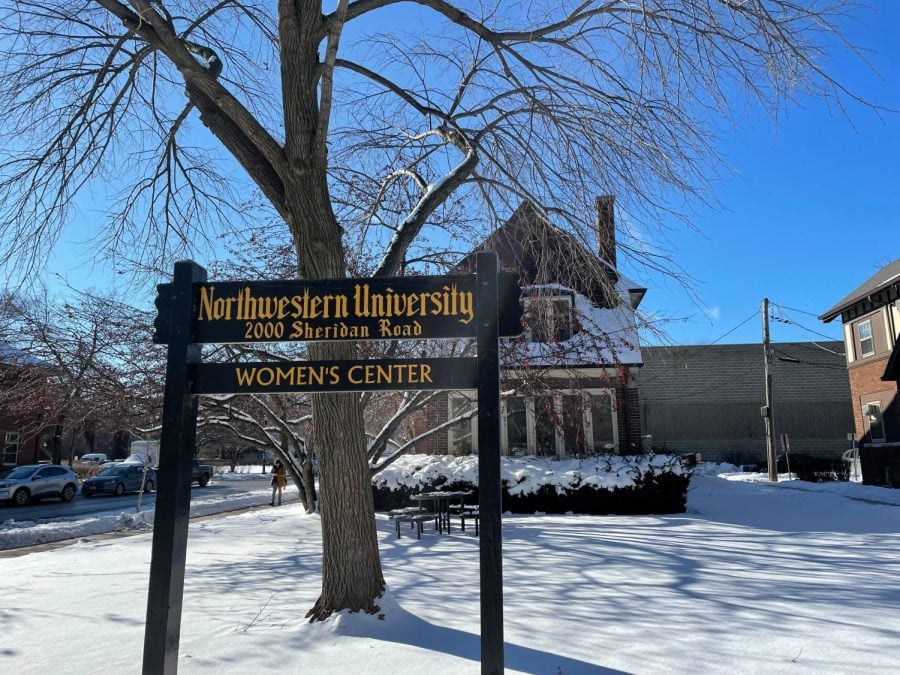Women’s Center spotlights disability justice with upcoming programming
Zella Milfred/Daily Northwestern
Northwestern’s Women’s Center is a space for the NU community to gather, listen and learn.
January 26, 2022
“Disability Justice & Feminist Practice” is Northwestern’s Women’s Center’s theme for 2021-2022, which will guide its programming for the year.
Members of the NU and Evanston communities can engage with this topic by participating in a variety of Women’s Center educational events. The center recently opened public registration for their annual Women’s History Month Symposium, which will be held virtually on Mar. 11 and will feature disability justice activist and author Leah Lakshmi Piepzna-Samarasinha as the keynote speaker.
The World Institute on Disability considers disability justice to be a comprehensive framework for advocating for the rights of disabled people whose identities intersect with other marginalized communities.
The Director of the Women’s Center, Sarah Brown, said the COVID-19 pandemic prompted her staff to think deeply about accessibility, flexibility and productivity, inspiring this year’s theme.
“We see it as a topic for the Women’s Center because of the disproportionate role women continue to take in formal and informal care,” Brown said. “But also, because hyper-competitive, patriarchal culture is ableist culture. It’s feminist for us to challenge the notion that we should be judged within narrow and biased definitions of productivity.”
In preparation for the symposium, the Women’s Center will work with Chicago activist Nerissa Osby to host a Disability Justice 101 workshop to ground participants in the framework of disability justice organizing. All of the Women’s Center’s programming is intentionally designed to welcome people who have no previous knowledge on disability justice or feminism.
Brown said the center will also offer an additional Care Webs Workshop to NU student leaders to teach them how to implement disability justice practices into their own organizing.
“This is a topic you can study,” Brown said. “But it’s also a thing you can do.”
Brown will also offer a Spring Quarter undergraduate course, “Feminism and Social Change: Disability Justice” in NU’s Gender and Sexuality Studies Program. Brown said she plans to center the disability rights movement in her course by hosting interviews with local activists.
Last quarter, the Women’s Center hosted a weekly reading group to discuss Piepzna-Samarasinha’s book “Care Work: Dreaming Disability Justice.” A group of 20 students, staff and faculty participated in the program, according to Melisa Stephen, the Women Center’s program coordinator.
Stephen said they hope the annual theme helps resist the popular desire for the world to simply “return back to normal” after COVID-19. Instead, they said they hope the lessons learned about accessibility during the pandemic remain relevant.
“We just really wanted to push back on that and have folks think about all of these lessons around accessibility and disability that we learned and are learning during this time,” Stephen said. “How can we make sure that those lessons stay with us?”
Weinberg senior Aaliyah Berryman has been a student staffer for the Women’s Center since her freshman year and participated in the Fall Quarter reading group.
“(I remember discussing) how raw the book was, and how it wasn’t meant to make the reader feel comfortable, or center non-disabled people in any way,” Berryman said.
When planning events, Berryman said the Women’s Center values intergenerational participation by engaging a mix of students, staff, faculty and Evanston residents. This inclusivity allows for conversations that better reflect the values and needs of the entire NU community.
“I hope people are able to take away how important disability justice is within social justice movements and within our greater push for accessibility and inclusivity,” Berryman said.
Email: [email protected]
Twitter: @ZMilfred
Related Stories:
—Women’s Center focuses on mutual aid education in Women’s History Symposium
—Student panelists discuss challenges, experiences of disability
—Professors discuss Black and White feminism at anti-racism speaker series












